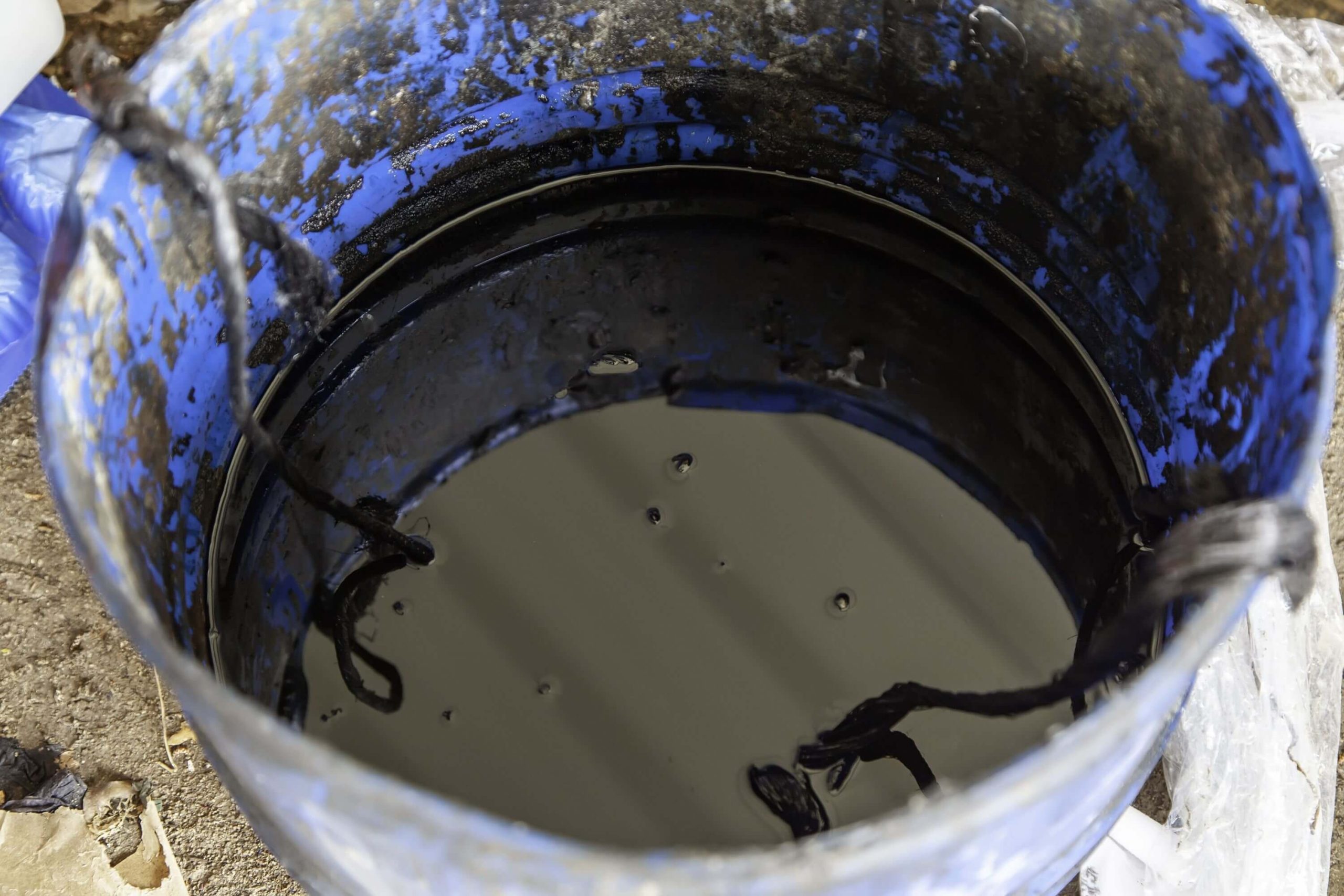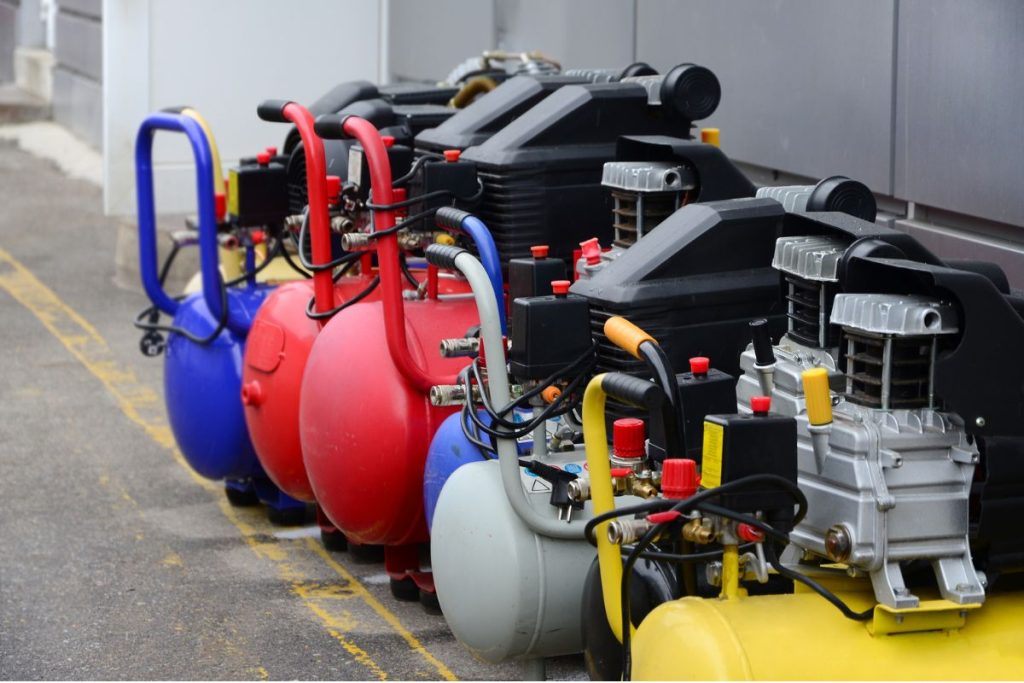When it comes to ensuring the efficiency and longevity of your air compressor, few components are as critical as the air compressor oil filter. The oil filter in a compressor plays a vital role in maintaining clean oil, preventing contaminants like dust, dirt, and rust from entering the system and causing damage. In this article, we’ll explore the role of compressor oil filters, the benefits of regular filter maintenance, and tips for replacing these essential components to maximise your compressor’s performance and lifespan.
In This Article
- Why Oil Filters Are Essential for Compressors
- Key Benefits of Using Quality Oil Filters in Compressors
- Symptoms of a Clogged Oil Filter
- When to Replace Your Compressor Oil Filter
- How to Identify the Right Oil Filter for Your Compressor
- Step-by-Step Guide: Replacing Your Compressor Oil Filter
- Extra Tips for Compressor Oil Filter Maintenance
- What to Look for in a Quality Oil Filter
- Why Choose Express Australia for Your Compressor Oil Filters
- Final Thoughts on Maintaining Compressor Oil Filters
Why Oil Filters Are Essential for Compressors
Oil filters in air compressors are designed to remove impurities from the oil before it reaches crucial components. These filters work to capture dust, sand, and other contaminants, preventing dust and dirt contamination that can cause extensive wear and tear on your compressor. Without a reliable oil filter, the compressor would face increased pressure drops, energy consumption, and a higher risk of expensive repairs due to dirt contamination.
By investing in high-quality compressor oil filters, you’re protecting vital components and maintaining smooth operation. Express Australia specialises in OEM-equivalent compressor oil filters, providing reliable options that are robust enough to withstand high operating pressures and keep your compressor running at peak efficiency.
Key Benefits of Using Quality Oil Filters in Compressors
- Improved Air Quality and Clean Oil
A compressor that operates with clean oil is far less likely to encounter performance issues. Quality oil filters help ensure that the oil circulating through your compressor is free from contaminants, leading to cleaner compressed air output. - Extended Component Lifespan
Filters help prevent debris and contaminants from damaging sensitive parts like bearings and seals. By keeping harmful particles out of the system, oil filters reduce the likelihood of performance loss and prolong the lifespan of components, saving you on costly repairs. Using quality OEM-equivalent oil filters is crucial as they are designed to meet OEM requirements, enhance efficiency, and provide superior protection against contaminants. - Reduced Energy Consumption
As filters clog with dirt, they can cause pressure drops that force the compressor to work harder, consuming more energy. Regularly replacing oil filters helps to maintain efficient performance, keeping energy consumption lower and reducing operating costs. - Minimised Risk of Expensive Repairs
Dirt, dust, and other particles can cause significant wear within your compressor, leading to costly repairs or replacements. By filtering out these contaminants, oil filters act as a line of defence against damage, minimising downtime and the risk of emergency repairs.
Symptoms of a Clogged Oil Filter
A clogged oil filter can significantly impact the performance and efficiency of your air compressor. Here are some key symptoms to watch out for:
- Decreased Compressed Air Output
One of the first signs of a clogged oil filter is a noticeable drop in the compressor’s air output. This happens because the filter is unable to allow sufficient oil flow, leading to reduced efficiency in producing compressed air. - Increased Pressure Drops and Energy Consumption
As the oil filter becomes clogged, it creates higher pressure drops within the system. This forces the compressor to work harder, consuming more energy and driving up operational costs. Monitoring pressure levels can help you detect this issue early. - Bypass Valve Activation
Many oil filters are equipped with a bypass valve that opens when the filter is clogged. This allows dirty oil to bypass the filter and flow directly to the compressor element. While this prevents immediate damage, it can lead to premature wear and tear on the compressor components. - Overheating Compressor Element
Dirt contamination in the oil can cause the compressor element to overheat. This not only reduces the lifespan of the compressor but also increases maintenance costs. Regularly checking the oil filter can help prevent this issue. - Clogged Oil Separator
A clogged oil filter can also lead to a clogged oil separator, which is responsible for removing oil from the compressed air. This results in reduced compressor performance and increased energy consumption, as the system struggles to maintain efficiency. - Increased Oil Consumption
If you notice that your compressor is consuming more oil than usual, it could be a sign of a clogged oil filter. The compressor may be compensating for the reduced airflow by using more oil, which can lead to higher operating costs. - Excessive Noise, Vibration, or Heat
A clogged oil filter can cause the compressor to produce unusual noises, vibrations, or excessive heat. These symptoms indicate that the system is under strain and may require immediate attention to prevent further damage.
By keeping an eye out for these symptoms, you can identify and address oil filter issues before they lead to more significant problems. Regular maintenance and timely replacement of oil filters are crucial for ensuring the smooth operation and longevity of your air compressor.
When to Replace Your Compressor Oil Filter
Regular replacement of compressor oil filters is essential for maintaining optimal performance. Factors such as the compressor’s workload, environmental conditions, and type of filter all influence how often filters should be replaced. Most manufacturers recommend checking filters during routine maintenance or every 500–1000 hours of operation. However, if you notice signs like increased oil consumption, pressure drops, or decreased performance, it may be time for an oil filter replacement.
How to Identify the Right Oil Filter for Your Compressor
Choosing the right oil filter involves considering the compressor’s model, operating conditions, and the specific requirements of your setup. A high-quality oil filter should have a large surface area and a robust paper filter element that can capture fine particles without affecting airflow.
When in doubt, our team at Express Australia is here to help you find the perfect OEM-equivalent oil filter to meet your compressor’s needs. With hundreds of options available, we can source precisely what you need, ensuring optimal protection and performance for your compressor.
Step-by-Step Guide: Replacing Your Compressor Oil Filter
Replacing an oil filter is a straightforward process that can be managed with some basic tools. Here’s a quick guide to help you get started:
- Turn Off and Depressurise the Compressor
Safety first: Ensure the compressor is off and completely depressurised before starting the replacement process. - Locate and Remove the Old Filter
Depending on your model, the oil filter may be located near the oil fill area. Carefully unscrew or unbolt the filter, taking care not to spill any oil. - Clean the Filter Area
Wipe down the area to remove any residual dirt or oil before installing the new filter, ensuring a clean seal. - Install the New Filter
Attach the new oil filter securely, following the manufacturer’s instructions to ensure proper fitment and seal. - Refill Oil (if necessary)
Once the new filter is installed, refill oil if needed, making sure it’s clean and suitable for your compressor. - Run and Check for Leaks
Power the compressor back on and run it for a few minutes. Check for any leaks around the filter area, ensuring everything is tight and functioning smoothly.
For expert guidance on selecting and replacing oil filters, our specialist, Dan, is available at Express Australia to assist you.
Extra Tips for Compressor Oil Filter Maintenance
- Monitor Pressure Drops
A sudden drop in pressure could indicate a clogged filter, leading to decreased efficiency. Monitoring pressure levels can help you detect filter issues early. - Check for Bypass Valve Functionality
Many filters come equipped with a bypass valve that ensures oil flow even if the filter becomes clogged. Regularly check this valve to ensure it functions correctly. - Regular Oil Changes
Just as with any engine, regularly changing the oil in your compressor keeps the system running efficiently and reduces the strain on filters.
What to Look for in a Quality Oil Filter
When selecting an oil filter, look for features that indicate durability and efficiency. A quality oil filter should:
- Have a high dust-holding capacity to trap contaminants effectively.
- Be built with sturdy materials to withstand high pressure without damage.
- Include a large surface area to maximise filtration without restricting oil flow.
- Incorporate a bypass valve to maintain oil flow during clogging.
- Be designed for easy replacement and maintenance.
Investing in a filter that meets these criteria not only improves the compressor’s performance but also safeguards against potential malfunctions and downtime.
Why Choose Express Australia for Your Compressor Oil Filters
At Express Australia, we’re committed to providing quality OEM-equivalent parts tailored to your compressor’s needs. With thousands of options available, we’re able to source exactly what you need, whether it’s a new oil filter, compressor element, or other critical parts. Our expert Dan is ready to assist, offering personalised recommendations to help you select the best filter for your compressor setup. Reach out today to discover how we can support your maintenance and replacement needs.
Final Thoughts on Maintaining Compressor Oil Filters
Regular oil filter maintenance is essential for maximising the lifespan of your compressor and minimising the risk of costly repairs. From maintaining clean oil to reducing dirt contamination, the benefits of a well-chosen, high-quality oil filter are clear. Whether you’re operating in harsh environments or looking to optimise everyday efficiency, our team at Express Australia can help ensure your compressor stays protected.
For more advice on oil filter replacement and maintenance, or to discuss your specific needs, don’t hesitate to reach out. Dan and the team are here to help you keep your compressor running smoothly, reliably, and efficiently.





